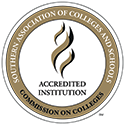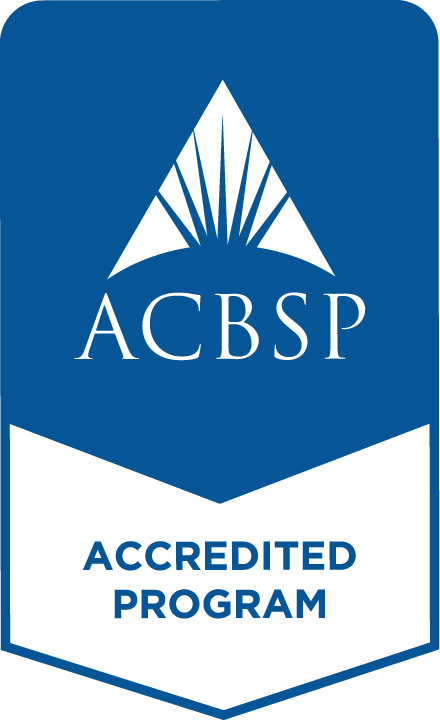Columbia Southern University (CSU) is dedicated to the success of its students through the use of a variety of technologies and technology support within the University. Collectively, the Technology Policies communicate institutional expectations for its users and constituents by providing instructional principles for use of all university systems including the myCSU Student Portal, CSU website, university networks, Internet, online classroom, and other hardware or software utilized in association with the user’s interaction with Columbia Southern University or its partners and affiliates.
Technology Requirements
Proficient use of e-mail, the Internet, and standard desktop software is recommended to successfully complete online, distance learning courses. CSU utilizes an online curriculum delivery method through the Blackboard Learning Management System (LMS.)
Please review the University Catalog for more details concerning technical requirements.
Additional Technology Requirements
Additional technology requirements may be necessary in some programs of study. Specific requirements are notated in the Course Description of courses requiring additional technology.
CSU reserves the right to update technology requirements, including both hardware and software, throughout the duration of the program. CSU strives to be innovative in its curriculum delivery to support student engagement in coursework.
Technical Support
Technical Support services are available and offer support services for Blackboard support and any associated 3rd party applications. Students encountering technical difficulty with their courses are encouraged to contact the CSU Helpdesk through the following methods:
Phone: (877) 399-1063
E-mail: techsupport@columbiasouthern.edu
Live Chat
For Helpdesk availability, please visit the Technical Support page in the myCSU Student Portal.
FAQs, Software Downloads, and Tutorials are available within the myCSU Student Portal under the Technical Support Navigation Tab.
myCSU Student Portal
The myCSU Student Portal is the gateway to the University. A few of the features available through the portal include the ability to view grades, submit course enrollments and access an individual student account. Upgraded applications, features, or functionality may be installed within the myCSU Student Portal and are subject to change. Occasionally, technology requirements will be revised accordingly to meet new university standards and initiatives.
Email Policy
Columbia Southern University considers e-mail the official form of communication. Important student information and announcements are communicated through this method. An appropriate, individual (non-shared) e-mail address is required for all CSU students. Students are expected to maintain a current e-mail address on file with the University. In the event a student’s e-mail address is no longer valid, access to the myCSU Student Portal may be restricted until such time the address is updated.
E-mail communications are subject to all applicable university policies, including the Student Rights and Responsibilities and Student Code of Conduct policy.
Student Technology Responsibilities
Online, distance learning utilizes technology as a platform for curriculum delivery and student engagement. Although most technologies can be viewed as stable, there may be occasions when technology fails. In our efforts to support students during technology failure, it is recommended students maintain an alternate technology plan. A student’s ability to request a grade change, late assignment submission, or similar request will be reviewed on a limited basis by the course professor and may be verified by CSU Helpdesk Support.
The following recommendations are made to maintain an alternate technology plan:
- Periodically save written work as progression is made on assignments.
- Hard Disks or Memory sticks are recommended to back-up data storage. Computer or hard disk failures do occur and can be detrimental to student course progress.
- In the event the technology failure is severe enough to disrupt course completion, the student should contact the course professor for alternate arrangements.
- Regular use of the back-up device is recommended for effective retrieval.
- A plan of action is recommended when the user’s primary computer fails. Examples of other alternatives include work computers, libraries, Internet Cafés, or a friend or family member.
- The following student requirements are maintained in the event of technology failure:
- Continued course participation and assignment completion is expected unless the student makes alternate arrangements with the course professor or campus, within the limitations of CSU Institutional Policy.
- Accidental assignment submission is not a basis for an opportunity to re-submit an assignment. Students encountering this circumstance should contact their course professor for a decision.
User Information Compilation and Use
Columbia Southern University (CSU) is the sole owner of user information, further defined as applicant and/or student information, collected within the constraints of user interaction with the University. Directory information may be disseminated to specific parties pursuant to FERPA (Federal Educational Rights and Privacy Act). CSU does not sell or share user information to outside parties without prior written consent of the user; however, the University may share any user information with its employees, affiliates and partners, or independent contractors with a vested interest. In addition, CSU may share user information with parties who provide educational, operational, or technical services or products on behalf of or directly to the University.
Student Portal and Blackboard Access
Blackboard user access will terminate in the event that a student’s status is changed to Inactive; further defined as inactivity in any 365 day period.
Individual course access is outlined in the Course Access Policy and is separate from the Student Portal and Blackboard Access Policy. CSU alumni will receive the official university newsletter, the CSU Communicator.
Electronically Transmitted Messages
Columbia Southern University (CSU) may retain electronically transmitted messages, defined as e-mail or other data, for an indefinite amount of time. Electronically submitted information, defined by this policy, is distinct and does not pertain to information collected and contained in the official student record. CSU does not retain electronically transmitted messages for any specified period other than time periods dictated by law. Users should not have an expectation any electronically transmitted messages will be retained for a specified time period.
Security of Information
Columbia Southern University (CSU) takes security of information seriously and as such, takes all reasonable precautionary measures to protect sensitive user information. CSU uses encryption and Secure Sockets Layer Web Server Certificates (SSL) for sensitive information requested for submission through the World Wide Web.
Information contained within the CSU Student Information System (SIS) is also viewed as sensitive, personally identifiable information and the University makes reasonable efforts to ensure all information contained within is secure from modification or deletion by unauthorized personnel. In addition, employees who do not have a vested interest to perform a relative job function are not granted access to information contained in the SIS. Servers containing the SIS are located in a secure environment.
Users of technology systems should acknowledge security of the aforementioned information cannot be guaranteed as systems can be compromised by unauthorized third-parties. All users further acknowledge there is no expectation user information is confidential or private when transmitted through or stored upon equipment or systems owned by the University.
Acceptable Use Policy
The Acceptable Use Policy governs all university systems used in association with the user’s interaction with Columbia Southern University or its partners and affiliates. Such systems include but are not limited to the following:
- myCSU Student Portal
- Columbia Southern University’s Website
- University networks
- Internet
- Online classroom
- Other hardware or software utilized in association with the University
All content transmitted to and from systems or networks are subject to the Student Code of Conduct Policy and sanctions contained therein.
Permitted Uses
Columbia Southern University technology systems are to have beneficial uses for all users for the sole purpose of instructional delivery in connection with academic, administrative, and operational activities of the University.
Prohibited Uses
Harassment
- Sending other users threatening, inappropriate, or unwelcome messages
- Sending unsolicited, bulk spam to other users
- Any other form of harassment
Privacy Breach
- Accessing, reading, copying , altering, or deleting another users work without authorization or permission
- Unauthorized access to other users’ accounts
- Transfer of user passwords to others
- Accessing unauthorized electronic communications
- Invasion of personal privacy
Willful Damage
- Purposefully damaging or corrupting hardware, software, or data systems
- Malicious uses of network and university systems
- Committing malicious attacks on university networks or systems
- Hacking passwords or systems
Copying
- Distribution or copying copyrighted material
- Copying other’s work as your own; plagiarism
- Unauthorized distribution of instructional material to other users
- Use of illegal or unlicensed software in conjunction with university systems
Abstract
- Engagement in illegal activities
- Unjustified accusations or slander of any person associated with the university
Indemnification of the University
Users granted access to Columbia Southern University Systems agree, by authorization of access and use, to exempt the university and hold it harmless from damages to include lawsuits, losses, and expenses. Damages also include but are not limited to attorney fees and litigation costs which could arise from breaches of transmitted content, violation of sensitive information and privacy, user violation of the Acceptable Use Policy or any other of the Technology Policies associated with use of university systems.





